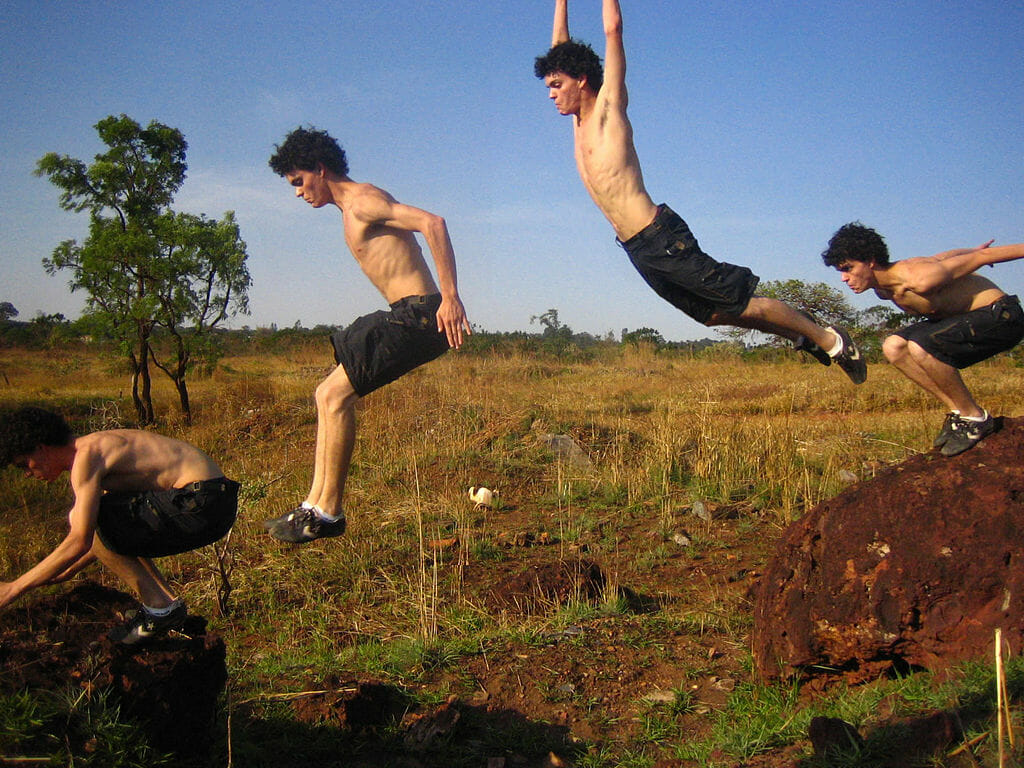
The city is a playground
The world is Glenn Knockwood's playground.
The world is Glenn Knockwood’s playground. He founded a parkour group in Halifax. Parkour is a sport often described as ‘the art of movement’. To understand parkour, it’s best to think of it as street gymnastics: vaulting, climbing and jumping in an urban environment.
But as Knockwood says, “It’s almost impossible to explain what parkour is … it’s like asking ‘what is reality?’” Parkour is less of a sport and more of a discipline, or a way of life.
Knockwood started doing parkour 10 years ago as a way of connecting with the city and, in turn, his spirituality. Knockwood grew up in Indian Brook, N.S., a Mi’kmaq community. His father taught him about four separate worlds: the physical, mental, emotional and spiritual.
He believes we live in all four at the same time, and by knowing each world individually, one gains a better and more holistic understanding of himself. Knockwood says he turns to the physical world as a way of coping with stress. To him, the physical world is a constant now, without comparison in it, so “by focusing on the physical world, [he] can get away “from the stress of thinking about the past or thinking about the future.”
Knockwood used Parkour as a tool to cope with the alienation he felt after he moved to Halifax to study media arts at NSCAD. Having grown up surrounded by nature, he felt suffocated by the city.
“Cities are killing, and they stifle you, and they don’t allow for creativity or growth or community,” he says. He would spend a few months in the city, growing increasingly depressed before escaping to nature to rejuvenate.
“Being out in nature gives me this charge. It reminds me I am connected to all things. It would fill me with this life, or energy,” he says.
While struggling to find a way to deal with this cycle, he stumbled across a video of parkour on the Internet. He was hooked.
“As soon as I saw little kids who were younger than me doing things I thought were impossible, I was like, ‘You go, right now,’ and I went out that night and started doing parkour.”
He found something that made him feel like he’d been out in the woods, when really, he’d been clambering around the city. “A lot of people feel that cities are very stifling, but in reality, that’s just perspective, and we can change our perspective,” says Knockwood.
Knockwood realized he was training at night, in seclusion. “I was doing that because I was afraid of people watching me and judging me, but those are just obstacles,” says Knockwood. Initially he would get distracted by people watching him or honking, but he channelled that distraction to a hyper-focus.
Knockwood says people see the physical aspect of parkour like using the world as a playground, “but what they want to know is why are you doing it?” he says. “And anytime you ask the question ‘why,’ you’re asking a spiritual question.”
“I do it to be more human. I do it to connect to the world around me. And those are spiritual answers. I feel at home everywhere I go, and I have been places that very few people have been. I feel like I have an intimate connection with the city.”
It’s even changed his attitude to the never-ending construction in Halifax, which he used to hate. “Now I’m like, ‘Ooh, I wonder what kind of railings they’re going to have outside the scaffolding?’”
If you want to try parkour yourself, you can check it out Tuesday (4-6 p.m. at the Mi’kmaq Friendship Centre), Wednesday and Friday (3-6 p.m. at the Clock Tower) and Sunday (noon-?? at the Clock Tower.)







